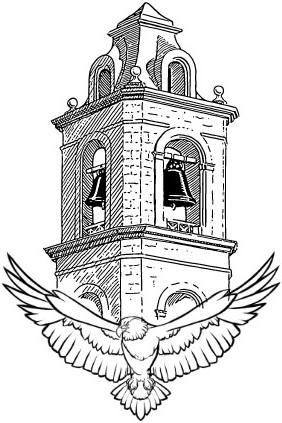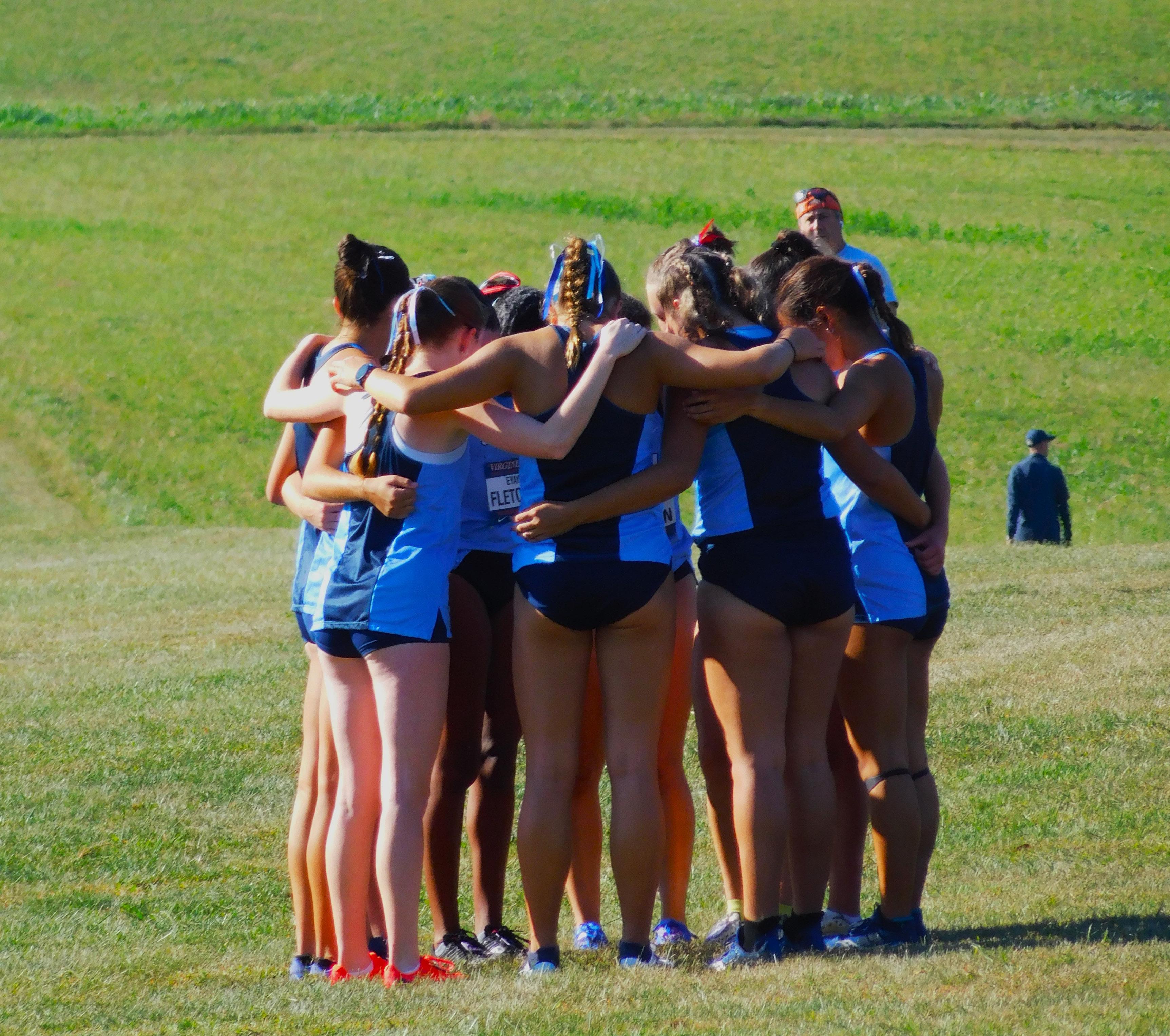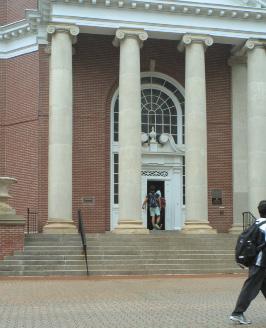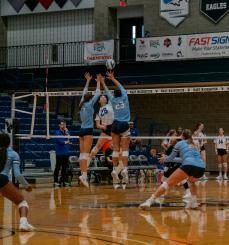










Editor-in-Chief
Callie Harkins
Executive Editor
SOPHIA LAGRAIZE Staff Writer
weeklyringer.executive@gmail.com
Associate Editors
Emma Kingkeo
Grace Wagner
Thomas Jackson
News Editor Ky Huynh
Meaghan Van Dyke
Opinion Editor
Ella Cordle
Life Editor
Chloe McCann
Sports Editor
Enya Cea-Lavin
Online Editor Sophia Tompkins
weeklyringer.opinion@gmail.com weeklyringer.news@gmail.com weeklyringer.associate@gmail.com
weeklyringer.online@gmail.com weeklyringer.sports@gmail.com weeklyringer.life@gmail.com
Photography Editors
Anna Goodman
Violet Ayers
weeklyringer.photos@gmail.com
Copy Editor
Kyra Donlon weeklyringer.copy@gmail.com
Faculty Advisor
Sushma Subramanian
weeklyringer.eic@gmail.com ssubrama@umw.edu
Corrections
Please report any corrections to Callie Harkins at weeklyringer.eic@gmail.com or Sushma Subramanian at ssubrama@umw.edu
Advertisement
Please direct all advertising inquiries to Callie Harkins at weeklyringer.eic@gmail.com.
Bell tower logo designed by Bernadette D’Auria ‘22
This fall, the University of Mary Washington launched the Center for AI and the Liberal Arts. According to UMW’s website, the Center intends to help students navigate the world as artificial intelligence use becomes increasingly common in academic and professional settings. Pioneered by the inaugural Director and Professor of Communication and Digital Studies, Anand Rao, the Center hosts several interdisciplinary course offerings and public events aimed at advancing understanding of AI tools and their broader impact.
“We all need to be informed about the costs, challenges, as well as opportunities, associated with the development of AI.”
- Anand Rao
“We all need to be informed about the costs, challenges, as well as opportunities, associated with the development and use of AI,” said Rao.
There have been two classes offered as part of the Center’s programming thus far: “AI in Society” and “Argumentation as an AI.” During the summer semester, a flagship class was offered online ahead of the Center’s official launch.
“The reason why the university thought it was important to develop a center like this is that we recognize that AI is disruptive, it is increasing its influence, it’s becoming ubiquitous in terms of certainly digital use and online platforms, but also throughout society,” said Rao.
He continued, “It’s also a recognition that the reality is, you all will be graduat-
ing into a world where you are expected to understand how to use AI, when not to use AI, most importantly, how to consider AI applications in a responsible use.”
In addition to the course offerings provided to UMW students, the Center will host a series of public events that allow the greater community to engage with scholarly material on topics associated with AI.
The Center’s first event, titled “Public Debate on AI and the Environment,” was held on Sept. 16 in the Hurley Convergence Center’s Digital Auditorium. Assistant Professor of Communication and Digital Studies Kaitlyn Haynal and Senior Lecturer of the Department of Cultural and Philosophical Inquiry Michael Reno debated whether continued AI usage would have a net positive or net negative impact on the environment.
“This, of course, includes a number of controversial topics,” Rao said at the start of the debate. “There are a lot of AI tools that I like to use, but I also want to make sure that we’re reflective about that use, and so some of the events that we’ll be hosting will give us a chance to reflect on that use and talk about some related issues.”
“I don’t like that we are teaching AI, I don’t like that we are teaching this in school.”
- Fiona Stevens
Later in the semester, on Oct. 29 at 7 p.m., Alan Coverstone, an adjunct instructor for the Department of Communication and Digital Studies, will present a guest lecture in the Cedric Rucker University Center’s Chandler Ballroom. Finally, a “Public Debate on AI and Copyright” will take place on Nov. 18 at 3:30 p.m. in the Weatherly Wing of Secobeck Hall.

Meridith Colburn, a junior historic preservation major who took the “AI in Society” class over the summer, said she was initially drawn to take the course because of her interest in learning about AI usage in the workplace.
“I looked at something that was an AI that archives emails, text messages, online communications, and AI was used to archive that for businesses and compliance to policies and whatnot, which is a more practical use for AI in the real world that are being used currently,” she said.
“AI is gonna become part of our life either way, like, if we like AI and if we don’t it’s all gonna affect us in some sort of way.”
- Samantha Allison
Senior communication and digital studies major Samantha Allison, who’s currently taking “AI in Society,” recognizes that AI is becoming increasingly central to daily life regardless of students’ personal feelings on the topic.
“AI is gonna become part of our life either way, like, if we like AI and if we don’t it’s going to affect all of us in some sort of way,” she said.
Though the Center is in its early stages on campus, some feel conflicted about its presence at UMW.
“I don’t like that we are teaching AI, I don’t like that we are teaching this in school,” said Fiona Stevens, a senior English major.
Rao said his goal is not to make anyone more for or against generative AI; instead, he wants to ensure that students are properly prepared for the potential impact the technology may have on the future.
“It is up to the individual to decide how they will use it, but they need to make informed decisions,” he said.
Students agree that learning to use AI in an ethical and secure manner is important.
“It makes sense that professors would need some help in recognizing it for like, security, Honor Code reasons,” said Genevie Benton, a junior biology major.
Rao is hopeful that the Center will benefit everyone on all sides of the AI debate and help students gain some perspective on AI and its uses.
“The liberal arts education that UMW provides is invaluable in providing our students with the skills to take the lead on these important issues, and this new Center will help support these efforts when it comes to AI and the Liberal Arts,” he said.
Callie Harkins contributed to reporting for this article.
Friday, September 19, 2025
KY HUYNH Executive Editor
During senior year of high school, my mom would always push me to go to school to build a habit of having good attendance, but there were times when I wasn’t sure if I could learn anything or be productive in the classroom because I was so mentally exhausted. I remember looking forward to college because I would be responsible for myself and have the ability to decide whether or not I wanted to go to class when I was not physically or mentally well. However, when my freshman year at UMW began, I noticed that every syllabus I read included a strict attendance policy.
What surprised me the most was that there was an attendance policy at all. I assumed that because we were all adults, we would be responsible for our own attendance without a policy that penalized absences. What also shocked me was that missing a specific number of classes could result in a drop in your grade; in some cases, it could even lead to dropping an entire letter grade.
“Not having an attendance policy puts the ball in our court as students—it’s up to us how we play it.”
- Blake Bauer
This policy felt counterintuitive to the independence I thought I would have in college. It became apparent to me that I would be more anxious about my attendance grade than the actual curriculum, which is why the university should remove professors’ graded attendance policies from their syllabi.
When students attend class, professors want them to be fully engaged. Students also want to be engaged, which is difficult when they’re sick or feeling mentally unwell. During the winter, a number of students tend to struggle with seasonal depression, which affects how they perform in school. Personally, I have really good days and
other days where I’m unproductive, mentally exhausted and unable to do my best work. On these days, there’s no point in attending my classes because I’m not able to get anything out of them. If there were no attendance policies, students would be able to take necessary mental health days.
Allen Queen, a senior international affairs major, believes that shifting attendance policies to be more accommodating leaves more room for mental health awareness.
“By acknowledging how important mental health is, or even other emergencies in a student’s life, a student can feel more comfortable and hopefully more confident,” he said. “Not having to worry as much about an attendance grade may not seem like much, but it does more than affect someone’s grade, it affects their life outside of the classroom.”
I’ve had experiences where I’ve been in emergencies that have interfered with my ability to attend class. For example, during my sophomore year, I was involved in a car accident before class. I was worried about not only my car, but also my attendance.
I remember being so distraught about being in my first car accident before class that I didn’t want to tell anyone except my family. I emailed my professor about the situation because of the attendance policy, as it required an excused reason, even though I personally didn’t want to share. Wanting to miss class is reason enough; professors shouldn’t be the judge on whether a reason is valid or not, and therefore, there is no reason to share those private personal details.
Students can still have basic communication skills with their professors when they’re unable to make it to class without an attendance policy. However, there are some instances where students should be able to keep their reasoning for not attending class private without having to explain the details to the professor.
“I’m all for a no attendance policy,” said Blake Bauer, a senior historic preservation major. “It’ll definitely help ease pressure off of students who are facing crises.”
Some may say that if we have no attendance policy, students can abuse that system and not attend any classes.


However, we are adults paying for college and students should hold themselves accountable for making up classwork if they miss class. Students should be responsible for getting their tuition’s worth and attending classes, not only to get the best grade, but to learn the curriculum.
“If someone doesn’t show up to class simply because they don’t want to, they’re wasting their own money and their grades will suffer as a natural consequence,” said Bauer. “The way I see it is that not having an attendance policy puts the ball in our court as students—it’s up to us how we play it.”
“Students should be responsible for getting their tuition’s worth and attending classes, not only to get the best grade, but to learn the curriculum.”
- Ky Huynh
Chris Foss, professor of English, generally does not have an attendance policy for upper-level classes.
“I assume the majority of those students are English majors and that’s what they want to do,” he said. “They’re in their wheelhouse, so they want to be there to talk about what they’ve been reading.”
There is also a separate grading category, “class participation,” that is already similar to attendance. There’s no point in having both a grade for attendance and a grade for participation because one measures whether or not someone shows up, and the other measures engagement in class, which is more important. Having just a participation grade will allow students to focus on being more involved when they are in class.
“I think class participation is 100% valid and has a place in every syllabus. It justifiably supersedes any attendance policy in my opinion,” said Bauer. “What’s the point in physically showing up if you’re not going to mentally attend.”
Attending class is important, but the individual students should be responsible for making that decision. If someone is feeling mentally exhausted, they should be able to implement mental health days for themselves. Also, we shouldn’t need to always justify why we aren’t able to show up, even if it’s because of a sickness or emergencies, we should be allowed to keep those reasons personal. How we engage and participate in class is how we should be graded, not whether or not we’re about to attend a class.
CHLOE MCCANN Life Editor
As the warm days gradually turn cool, a stop at Carl’s Frozen Custard on 2200 Princess Anne St. lets students savor the last bites of summer.
With its colorful neon sign and employees outfitted in retro parlor uniforms, Carl’s draws families with their dogs and strollers as well as college students, all coming not only for the soft-serve delicacies but also for the shack’s nostalgic charm, transporting them back in time.
The shop serves as one of the oldest still-running family-owned restaurants in Fredericksburg, established in 1947, and stands atop a high historic pedestal for arguably being the best locally made custard.
However, its historic reputation as a local summer landmark made my friends and me question: can it still live up to its long-standing reputation?
At 7:50 p.m. on Friday, Sept 12, in the parking lot beside Carl’s, my friends and I pulled up, excited to finally try it for the first time.
I had only heard about Carl’s from my professors, who insisted it was a must-do activity, but I had never gotten around to trying it. On top of that, Carl’s previously only accepted cash payment, which made going there inconvenient.
After recently changing their payment policy to now accepting credit cards, without the hassle of bills, I was finally inclined to go.

Only taking about 18 minutes, Carl’s is easily walkable from campus. However, my friends and I decided to drive, which took about eight minutes total.
At Carl’s, chirpy employees in tiny parlor caps lean through the glass window, eager to take your order. Above them, the menu’s seemingly vintage bold block letters spell out the shop’s frozen treats.
Within about two to three minutes upon approaching the stand, our orders were taken.
For a total of $26.00, my friends and I got one root beer slush float, one strawberry shake, one dish of vanilla custard with a sugar cone on top and one hot fudge sundae with nuts.
The service at Carl’s was surprisingly very fast, taking only about 4-5 minutes to fulfill our orders.
Seating at Carl’s is limited to a few uncomfortably hard cement benches. With no tables to put our ice cream on, my friends and I awkwardly hunched over our purchases while sitting on the backless cement blocks.
We each started our taste test by trying a spoonful of the strawberry shake. The shake was light and fluffy and feels like a summer night on your tongue. The shake’s consistency made it very satisfying to taste.
“Something that I liked about the shake is how there’s not huge strawberry chunks in it, so it makes it drinkable through a straw, and there’s no cloggage,” said Kenzie Forbes, a sophomore and friend at UMW who joined me at Carl’s.
Next, we tried the chocolate fudge sundae with nuts. With just the right amount of nuts, ice cream and fudge, the sundae is an incredible blend of flavors.
Even sophomore Nikki Miller, a political science major and self-proclaimed picky eater, enjoyed the flavorful tastes of both the shake and the sundae.
“I liked the milkshake and thought it was pretty good, even though I’m a picky eater and usually don’t like trying new things; the Sunday was also very good,” said Miller.
For Miller, the root beer slush float was her least favorite, which was the general consensus among the group.

“It tastes like root beer but with a weird texture,” said Miller. The root beer float can only be ordered as a slushie. And as a slushie, the root beer comes out pre-frozen, which creates an odd, partly liquid and partly frozen consistency that pairs weirdly with the frozen vanilla custard.
However, the plain vanilla custard, which is what Carl’s is most known for, was the last for us to try.
Carl’s preserves the old-fashioned method of making custard. Using eggs, sugar and butterfat, they mix their custard in machines that have been maintained since the 1940s.
Compared to other custards, Carl’s is made completely from scratch and you can taste the difference in quality in every bite.
“It doesn’t taste like store-bought vanilla or vanilla extract. It tastes homemade like it’s straight from the vanilla bean,” said Forbes.
The butter, eggs and sugar give the custard a flavor almost like buttercream.
Going to Carl’s is a perfect way to end the summer and its reputation is understandable around Fredericksburg. The custard is worth every step of the 18 minutes it takes to walk from campus.
According to Finn, the dishwasher at Carl’s, “the busiest time to come is usually around 7:30 p.m. - 9 p.m.,” so to skip the rush, the best time for students to come is anytime before then.

Editor
Carabiners, jorts, cut-off tank tops and tote bags galore, the mascs did not come to play.
Given UMW’s history as a women’s college, impromptu planners took a bit of a creative spin on the “performative man contest” trend by introducing the UMW Performative Masc Competition, highlighting the many Mary Wash masculine lesbians, or mascs, in their own right.
College campuses across the country are experiencing an unprecedented surge in a new genre of masculine expression: performative man contests. Once confined to fraternity basements and the occasional intramural weightlifting meet, these “Bro-lympics” have now taken center stage with a more feminized twist.
Posted merely three days before the actual event, a flyer reading “PERFORMATIVE MASC CONTEST, THURSDAY, 6 P.M. Ball Circle, bring your wired earbuds, labubus, and ceremonial grade matcha. Maybe you’ll be the last masc standing,” was posted to YikYak.
The news of the post began to trickle into conversations around campus until it seemed as though everyone was talking about it, however, in the hours leading up to the event, students were skeptical of how many mascs would actually be in attendance.

The clock struck six, and lo and behold, about 30 contestants and over 100 spectators joined together on Ball Circle for the event.
Student judges asked the contestants to show off their outfits, explain why they should be the winner and try to describe women in just a single word.
Tensions were high as one masc after the other was seemingly even more performative. The judges looked on with strong poker faces so as not to reveal any sort of bias as the crowd went absolutely wild as the mascs performed before them.
As the competition came to a close, the crowd became antsy with anticipation as deliberations began to pick the winner. The judges took to the audience to pick their winner out of the final three contestants by measuring the strength of the cheers they received.
The final three stepped forward for the cheering crowds, and everyone held their breath as the judges made the final call.
The UMW Performative Masc Contest crown went to junior religious studies and physical therapy double major, Theresa Oetgen.
As the crowds cleared, students left with giggles, exchanged photos and some left with a new favorite UMW memory. While this event was very lighthearted and silly, it highlights something much deeper that college students are seeking out: a chance for spontaneous connection and a deeper sense of community right here on campus.







OPEN in klein theatre NOW thru SEPTEMBER 28 TICKETS ARE $5 w/ UMW ID AT THE KLEIN THEATRE BOX OFFICE IN THE LOBBY OF DUPONT HALL (Limit TWO tickets per UMW ID)



The University of Mary Washington is considering changes to parking along College Ave., according to Kathryn Sandor, director of Business Services, who says discussions are focusing on whether the street should transition into a designated commuter parking lot.
While the plan has been an ongoing conversation for several years, the UMW Parking Management Office emphasized that no immediate changes will be made and noted that options are still being assessed. The administration is balancing the needs of residential students, commuter students, faculty, staff and community members in order to arrive at a solution that addresses both convenience and fairness.
“Changes to parking on College Ave. are not happening immediately, as we are collecting stakeholder feedback from students and residents who share this area as a regular route to and from campus,” said Sandor.
As UMW evaluates potential updates to College Ave. parking, Sandor emphasized that collaboration with both students and local residents remains a top priority. The conversation also includes input from the Student Government Association, which joined the discussion this summer.
President and senior environmental science major Amira Said confirmed SGA’s role in the discussions regarding possible changes to parking.
“Yes, SGA has been in conversation with Parking Management,” she said. “We are representatives for all students in these conversations, and we have not been notified of any changes so far.”
The renewed attention to College Ave. parking follows the changes in students’ parking patterns. According to Sandor, many members of the UMW community are now parking along College Ave. and nearby streets, as well as in areas not designated for student use. These include retail store parking lots at Eagle Village and various privately owned parking areas close to campus.
The closure of the Marshall and Russell lots earlier this year forced students to adjust their routines, creating new strains on available parking spaces across campus. Parking Management has advised students to avoid using unauthorized lots, warning of potential consequences.
“We advise against this as students may receive city parking tickets for residential areas or for parking in spaces reserved for businesses and could have their cars towed for repeat infractions,” said Sandor.
Students who purchase parking decals are provided with specific information about where they are permitted to park, depending on their residential or commuter status. Sandor emphasized that this system is designed to ensure fairness and to prevent overcrowding in certain lots.
“As students purchase decals, they receive information on where to park specific to their designated decal,” Sandor said. “Conversations with individual students and their families as they arrive to campus and plan their daily schedule can also help students navigate the parking areas.”
Sandor also recommended that students plan ahead and allow extra time to park, especially during peak hours. According to Sandor, the university hopes that proactive communication, combined with enforcement of existing regulations, will reduce ticketing and towing incidents, especially on College Ave.
College Ave. has historically served as open parking for campus visitors, commuter students, faculty and staff attending classes, events or work obligations. However, the university has expressed concern about residential students leaving their cars parked on College Ave. for long periods of time.
“We advise residential students who may leave their car parked for hours or days at a time to utilize the residential student parking lots,” Sandor said. “Please be con-
The Crime Column is based on UMW Police reports from Sept. 10 to Sept. 17.
On Sept. 10 at 1:47 p.m., there was a case of disorderly conduct at the Jepson Science Center. This case is pending.
On Sept. 15 at 11:40 p.m., there was a case of underage alcohol possession at Westmoreland Hall. This case was referred to O.S.C.A.R.
siderate of those who may be coming to campus for a visit or for a short period of time.”
This ensures that spaces remain available for visitors and commuters who need them for limited periods.
Madison Lawhorn, a junior communication and digital studies major who commutes to campus, says that transforming College Ave. into commuter-only parking would relieve stress for off-campus students.
“I think the university should consider making College Ave. a designated commuter lot because it’s a central location that would greatly benefit those who travel to campus daily,” she said. “I currently struggle with finding parking because they are either too far or always full by the time I arrive, which adds unnecessary stress and makes me late for class or having to arrive early. Expanding accessible commuter parking would make a huge difference for many students.”
“I think the
university should consider making College Ave. a designated commuter lot because it’s a central location that would benefit those who travel to campus daily.”
-
Madison Lawhorn
There have been raised questions about whether the conversion of College Ave. into a commuter-only zone would inconvenience residential students who rely on the street for overflow parking. Others worry about enforcement and the possibility of stricter ticketing policies.
Said reiterated that SGA’s role is to ensure those concerns are heard, and encouraged students to voice their concerns through existing SGA channels.
“If students have any concerns on this topic, they should feel free to fill out our Eagle Concerns form or attend a senate meeting that happens every Monday at 8 p.m. in CRUC 314 to express their concerns,” she said.
As conversations continue, students can stay informed on parking changes through the university’s Parking Management website and follow updates from SGA.
Thomas Jackson contributed to reporting for this article.
On Sept. 17 at 5:10 p.m., there was a case of DIP/Indecent Exposure at Arrington Hall. This case was referred to PD.
JOSEPH RUEDI
Contributing Writer
This past Saturday the University of Mary Washington’s women’s volleyball team beat Marymount University 3–0 to open the day’s triple header. This game marked an opportunity for the Eagles to set the tone for the rest of the competition and show how they are changing up their strategy partway through the season.
Head Coach Emma Rohde was proud of her team’s performance at the end of the game.
“Today’s morning win was a big win, we’ve been talking about taking steps every day, getting 1% better,” she said. “And I think our girls really bought in the last 3 splits.”
The players faced intense competition in these games, with the Marymount University Saints trailing UMW by at most five points each game. However, the Eagles took on the challenge and rallied each other on to the victory.
In the second set, UMW had to pull a six point comeback to beat Marymount 25–24. In the following set, Freshman setter Olivia Fortier started the match off with four straight serves resulting in a 4–0 lead for the Eagles.
Avery Gallahue, a senior psychology major and middle hitter on the team, shared what she thought about the victory and her team.
“I love the girls, like every single person on our team; We mesh so well together, and we’re really all just in for the same motivation and the same objective,” she said.
The Eagle’s next game is Saturday, Sept. 20 against the University of Mount Union.

“I
love the girls, like every single person on our team; We mesh so well together, and we’re really all just in for the same motivation and the same objective.”
- Avery Gallahue

“I think our girls really bought in the last three practices, and did a really nice job executing the practice plans.”
- Emma Rohde



Men’s Soccer (3-3)
Sept. 13 at Washington College (2-3)
Sept. 20 at Virginia Wesleyan University
Sept. 24 vs. Bridgewater College
Women’s Soccer (5-1)
Sept.13 Virginia Wesleyan University (2-0)
Sept. 20 at Methodist University
Sept. 24 at Marymount University
Men’s Tennis (0-0)
Oct. 2 vs ITA South/Southeast Regional
Women’s Tennis (0-0)
Sept. 27 ITA South/Southeast Regional
Volleyball (2-7)
Sept. 13 vs. Marymount University (3-0)
Sept. 13 vs. Virginia Wesleyan University (0-3)
Men’s Rugby (0-1)
Sept. 13 at Navy (3-65)
Sept. 20 vs Mount St. Mary’s
Women’s Rugby (0-1) Sept. 13 at Navy (3-65)
Sept. 20 vs Mount St. Mary’s
Field Hockey (2-3)
Sept. 13 vs Shenandoah University (2-5)
Sept. 17 vs Washington and Lee University (2-4)
Sept. 20 at Denison University
Games are available